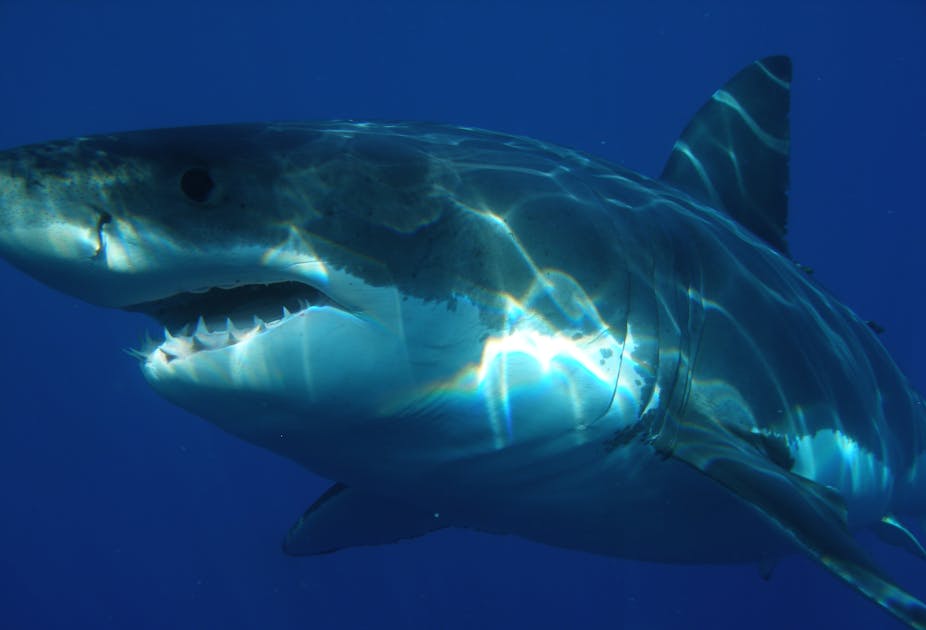When I used to tell people that I did my PhD on the politics of shark attacks, they would ask, “Is there a politics to shark attacks?” Nobody asks that any more. Now they just say, “Oh, like in Western Australia?”
Those politics have been deployed again in the past week, after surfer Sean Pollard lost an arm and his other hand in an incident near Esperance on the state’s south coast.
In response, the Barnett government implemented its “imminent threat” policy, which calls for the setting of baited drumlines in an area where a shark bite incident has occurred. (The policy, which remains in place despite the demise of the wider shark cull, also allows a shark swimming near a popular beach to be pre-emptively killed.) Two protected great white sharks were killed as a result.
Yet the exact details of the original incident are far from clear. Pollard said he believed two bronze whalers were responsible. Meanwhile, scientists who examined his surfboard believe that one white shark may have been involved, although they were unable to confirm whether either of the two sharks that were later killed was responsible.

Myths and rogues
The myth that sustains this policy goes something like this: individual large sharks pose a threat because they are territorial. A shark that bites someone is likely to do it again, and even if there is not an incident now, it is better to kill the shark because it may return.
We have heard this logic before … in the movie Jaws. The policy is predicated on a fictional Hollywood myth that “rogue” sharks will return to an area and pose a threat to beachgoers and surfers.
The story of serial-killing sharks, however, is not the most concerning aspect. The real problem is how this myth serves as a distraction from a bigger issue.
There continue to be serious and fatal shark bites along the Australian coast that are horrific and life-changing for those involved, their loved ones and their communities. It is time for serious efforts to try and reduce the risk of shark bites based on science and common sense beach safety. But the WA government’s imminent threat policy is not a serious effort at shark bite prevention.
Safety… or revenge?
WA’s Jaws-style policy is designed to provide public catharsis through retribution, not public safety. The imminent threat policy can be enacted to kill sharks regardless of whether there are any people in the water, or whether the shark was involved in an incident, or whether killing it improves beach safety, or whether the species is protected by law. In short, this is closer to an old-fashioned witch hunt than to sound public policy.
But it gets worse. While we should give WA credit for spending millions of dollars on scientific tags and testing new non-lethal measures, the latest episode led the Department of Fisheries to kill a white shark that had an internal acoustic tag. So the fiction-based policy that doesn’t help beach safety just undermined a scientific program that does.
Meanwhile, the policy also provides a false sense of security by painting a picture of one shark as the issue – the “problem shark”.
How do we improve this situation, both politically and socially? Here are a few ideas:
This is about the people, not the sharks.
It is important to hit the pause button and remember that this issue has touched communities all over Australia. This year has seen fatal shark bites on Australia’s east coast, involving Christine Armstrong in Tathra and Paul Wilcox in Byron Bay, as well as in the west. After the intensity of these events fades, the difficulty and tragedy will remain and community support for the victims and their families is essential.
This is about the government, not the sharks.
When it comes to beach safety, governments across Australia need to redirect their focus onto public education and science. The facts are simple. We cannot shark-proof Australia, so public education is the only real way forward. This is a way for WA and the other states to lead and bring people together, rather than setting groups apart with divisive policies. Everyone is in favour of better awareness and education but this remains the missing piece.
This policy could get worse, not better.
At the moment, the Barnett government appears to support the killing of uninvolved, protected, scientifically tagged great white sharks. One tagged shark has already been killed, and it is possible that things could get even worse from here. With the start of the summer beach season, I expect there will be pressure to begin killing tagged great whites that set off acoustic alarms near beaches. The government has noted that this will not happen, but it is a logical next step in the current thinking.
In all, I hope for a safe, quiet summer with no human-shark encounters. I also hope that science can be used as the basis for public policy. Movie myths make for bad policy and the public deserves better.
The question now is whether the latest tragedy can serve as a tipping point for real shark bite prevention.

